Letter to Pope: Halt church support of anti-gay violence
Colin Stewart is a 45-year journalism veteran living in Southern…
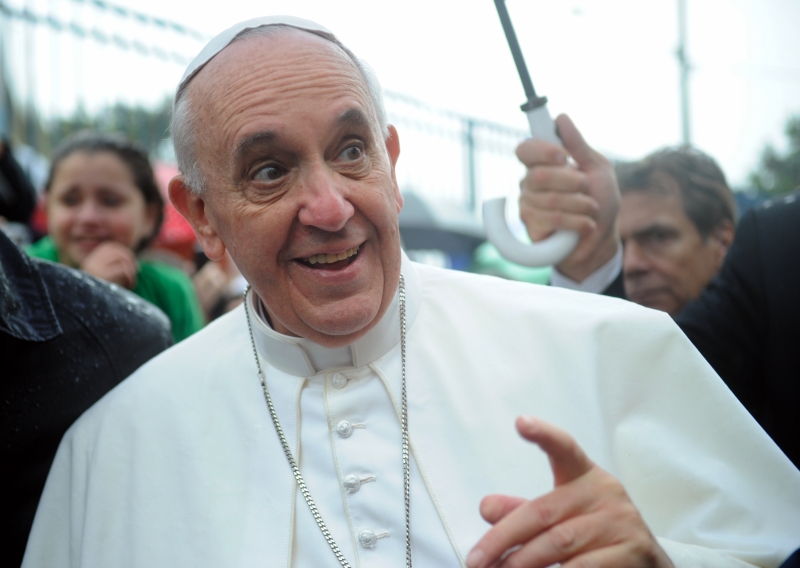
Human Rights Watch has challenged Pope Francis to speak more directly in opposition to violence and discrimination against LGBT people worldwide and to ensure that other Catholic officials do so too.
In a letter to the Holy See on Oct. 16, HRW praised church teachings that uphold human dignity for all, but added that “too often Catholic Church officials around the world contradict these stated principles in speech and practice.” Specifically, HRW asked Pope Francis to:
> Clearly and publicly condemn violence against people in sexual and gender minorities whether by the state or private actors;
> Call for the decriminalization of consensual, sexual relationships and support the repeal of other unjust criminal penalties that discriminate against people in sexual and gender minorities;
> Help moderate the public tone of local Church leaders on sexuality; and
> Call for greater legal protections for people in sexual and gender minorities.
The organization cited specific anti-LGBT statements and actions by church officials in Cameroon, Nigeria, Uganda, Jamaica, Belize, and the Dominican Republic. This is the section of the letter about those countries:
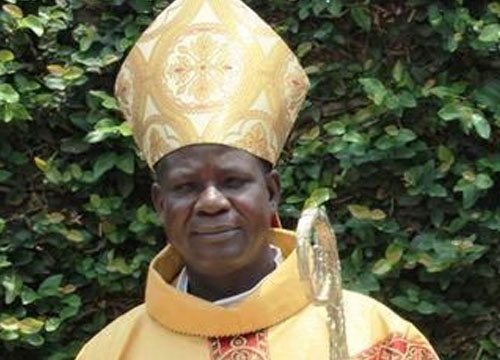
In Cameroon, for example, Archbishop Samuel Kléda and other Catholic leaders have endorsed unjust criminal penalties against people in sexual and gender minorities, while failing to denounce the violence these vulnerable populations routinely face. Cameroon has the worst record in Africa regarding the persecution of homosexuals. In Cameroon, people are often arrested and prosecuted simply for “being gay” — ostensibly indicated by the way they dress, their mannerisms, or their personal tastes. Organizations that work to defend LGBT rights face horrific attacks. Recently, a LGBT human rights activist, Eric Lembembe, was brutally tortured and murdered.
Sadly, Archbishop Kléda has not only failed to denounce these deplorable acts, he has actively contributed to an environment of hostility toward sexual and gender minorities. In February, for instance, Archbishop Kléda joined a group of Catholic legal professionals, the Association of Cameroonian Roman Catholic Jurists, to publicly endorse criminalizing homosexuality. In so doing, during a panel discussion, he cited a passage from Leviticus 20:13, which calls for the death penalty for sexual relations between two men. In Cameroon, under section 347 bis, a person who engages in “sexual relations with a person of the same sex” can already face a prison term of up to five years. Archbishop Kléda has appeared to imply that the law is too lenient.
[Editor’s note: Kléda is archbishop of Douala, Cameroon. Pope Francis has replaced the similarly anti-gay archbishop of Yaoundé, Cameroon, Victor Tonye Bakot, with the apparently more compassionate Archbishop Jean Mbarga.]
We believe that Catholic leaders should openly condemn these kinds of statements. They belie the Holy See’s position and contribute to a very real climate of hatred, harassment, violence, and death.
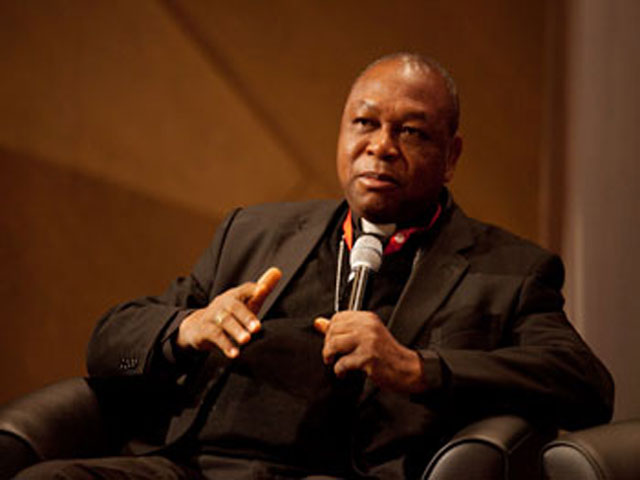
In Nigeria, politicians since 2006 have debated a series of statutory measures that would criminalize same-sex civil marriage, impose harsh penalties on same-sex couples, and even criminalize participation in a group that advocates the rights of people in sexual and gender minorities. A bill to this effect was recently passed in the Nigerian House of Representatives, bringing it one step closer to becoming law.
The Church has endorsed these proposed punitive policies. In 2009, Reverend Patrick Alumake, speaking on behalf of the Nigerian Catholic Church at the Nigerian National Assembly, said the Church supported the bill “wholeheartedly.” This past May, when the House of Representatives approved the bill, the Nigerian Church failed to denounce provisions in the bill that seriously limit the civil rights of sexual and gender minorities. On the contrary, in the months preceding the final vote on the bill, Cardinal John Olorunfemi gave a homily condemning same-sex marriage and seemingly supporting the legislation.
We recognize that the Nigerian Catholic Church has the same right to advocate for or against same-sex marriage as any other entity in Nigeria. However, the bill in question goes well beyond a position on marriage and criminalizes anyone who registers, operates or participates in clubs, societies, and organizations for sexual and gender minorities, as well as public shows of affection between people of the same-sex. The bill seeks to deny the very freedom of expression that the Church is exercising. The Church, we strongly believe, should publicly declare its opposition to laws and leaders that convey a message of hate and condone the persecution of vulnerable minority groups.

In Uganda the Catholic Church has wavered in its position on the fundamental civil rights of vulnerable sexual and gender minorities. In December 2009, Archbishop Cyprian Lwanga opposed the Ugandan Anti-Homosexuality Bill, which proposed sentences of life in prison or even death for same-sex sexual acts. Archbishop Lwanga called the bill “at odds with Christian values” such as “respect, compassion, and sensitivity.” At the time the Holy See also condemned the bill as unjust discrimination. In June 2012, however, a coalition of Anglican, Catholic, and Orthodox churches asked the Ugandan parliament to speed up the process of enacting a version of this bill. By joining this coalition, the Ugandan Catholic C
hurch has seemed to accept a proposed bill that would not only increase existing penalties for consensual same-sex sexual acts to life in prison, or even death, but would also require all Ugandans to inform authorities if they are aware that someone is a homosexual, or else face criminal sanctions.
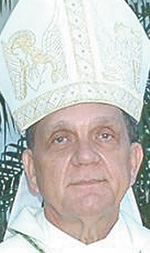
In the Caribbean, the Archbishop of Kingston, Jamaica, Charles Dufour, has also refused to condemn both the endemic violence faced by people in sexual and gender minorities in Jamaica, and the Jamaican government’s criminalization of private sexual acts between consenting adults. In recent years, Human Rights Watch, the Organization of American States, the U.S. State Department, and other governments and organizations have criticized the pervasive violence sexual and gender minorities face in Jamaica. Beatings, police brutality, torture, and murder of people in sexual and gender minorities are commonplace.
As in other parts of the Caribbean, such as Belize, local advocacy groups are challenging Jamaica’s anti-sodomy law. When asked by advocates to clarify the Catholic Church position on the criminalization of consensual acts between same-sex partners, Archbishop Dufour said he felt no “need to make any special declaration” regarding the debate in Jamaica. Archbishop Dufour, however, did call attention to the vilification and persecution of religious groups advocating against rights for sexual and gender minorities.
We find this statement disheartening. Archbishop Dufour and other leaders in the Jamaican Church missed an important opportunity to give substance to the Holy See’s position, and have contributed to the vicious climate many Jamaicans face.
In the Dominican Republic, Cardinal Nicolás López Rodríguez recently harshly opposed the appointment of James Brewster, an openly gay man, to the post of U.S. ambassador to the Dominican Republic. Cardinal López Rodríguez referred to Brewster on national television as a “faggot” (maricón). Subsequently, the Catholic Church of the Dominican Republic called on Dominican Catholics to organize a “Black Monday” protest to object to the appointment.
Cardinal López Rodríguez’s words and actions are deeply troubling and offensive, promoting a climate of disrespect and intolerance. Sadly, this type of dehumanizing language is too often used by Church leaders around the world.
The letter also praised Catholic leaders in Kenya, Dominica, Colombia, and the pope’s own actions both as pope and previously in Argentina, when he was still archbishop of Buenos Aires. This is the section of the HRW letter about that leadership:
In your own ministry, you have called for a Catholic position that engages society in a critical dialogue, while avoiding religious harassment and respecting civil rights. As Archbishop of Buenos Aires, you publicly condemned the “spiritual harassment” that takes place when ministers impose demands “in such a way that takes away the freedom of the other person.” You have noted that while religious leaders have the right to advocate specific moral positions, this does not mean forcing others to adopt these positions. Similarly, during the Argentine same-sex marriage debates, you defended the Church’s moral position, while proposing an alternative that would recognize civil unions. More recently, you have made public statements concerning the need to reserve judgment of homosexual people. We are heartened to hear these statements and to know that, despite our different moral positions, we agree on the need to ensure everyone’s fundamental freedom and to honor and protect human dignity.
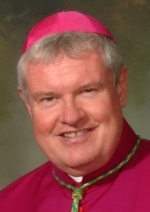
The Apostolic Nuncio to Kenya, Archbishop Charles Daniel Balvo, recently stressed that while the Church does not approve of homosexual conduct, it recognizes and respects everyone’s individual dignity. He said that homosexuals “should be defended against violation of their dignity and human rights, they are human beings like any one of us.”
In the Caribbean island of Dominica, the Bishop of Roseau, Gabriel Malzaire, has also publicly opposed the criminalization of sexual acts between consenting adults. In April, Bishop Malzaire made a public statement to that effect, approvingly citing the Holy See’s 2008 statement at the U.N. General Assembly. Bishop Malzaire stated that “free sexual acts between adult persons must not be treated as crimes to be punished by civil authorities.” He went on to say that the Church’s role in these debates is primarily a moral one.
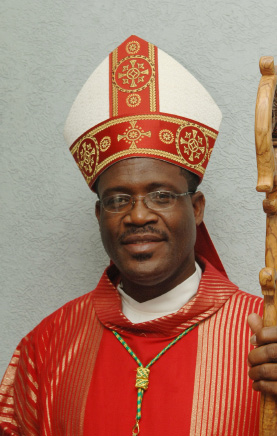
Statements like Bishop Malzaire’s are important in protecting the civil rights of sexual and gender minorities in countries that, like Dominica, criminalize consensual sexual acts between people of the same-sex.
In the midst of the same-sex debate in Colombia this past April, Cardinal Rubén Salazar Gómez, president of the Colombian Episcopal Conference, spoke to the local newspaper El Tiempo. Cardinal Salazar explained that although the Church did not support same-sex marriage, it supported legal recognition for same-sex unions. Cardinal Salazar noted that legal same-sex unions “have a right to exist, no one can ask them to not exist.”
We commend these actions by Church leaders. We find that these types of statements are critical in creating societies that defend the civil rights of people in sexual and gender minorities, and protecting these vulnerable populations from abuse and harassment. We call on you and local Catholic communities around the world to help disseminate, and encourage these types of examples.
For more information, read the HRW press release “Holy See: Condemn Violence, Bias Against LGBT People” and the full text of the letter.
Related articles
- Steps toward LGBT equality via D.C., Rome, the Gambia (76crimes.com)
- Does ‘pastoral role’ of churches include jail for gay sex? (76crimes.com)
- Plea at U.N. to stop violence; Cameroon claims it will change (76crimes.com)
- Pope’s message for anti-gay Catholics: Accept gays (76crimes.com)
- Signs of Caribbean progress for Catholics, LGBT rights (76crimes.com)
- Catholic bishop in Dominica: End anti-homosexuality laws (76crimes.com)
- Catholic lawyers push Cameroon to keep anti-gay law (76crimes.com)
- In reversal, Catholic Church backs ‘Kill the Gays’ bill? (76crimes.com)



You LGBT guys are so full of yourselves. Why are you persecuting people for expressing their position on gay rights. Why paste their pictures here? Is it to encourage violence against them orchestrated by LGBT activists? You are directly contradicting yourselves! Homosexuality might be normal to you BUT to the world’s VAST MAJORITY, it is abnormal. While LGBTs should not be physically attacked, they should not enjoy public acceptance which offends the vast majority of normal people. Why are being NORMOPHOBIC?!
Dear Solomon,
When you say, “Why are you persecuting people for expressing their position on gay rights. Why paste their pictures here? ” I have no idea what you’re talking about.
— Colin Stewart, editor of this blog